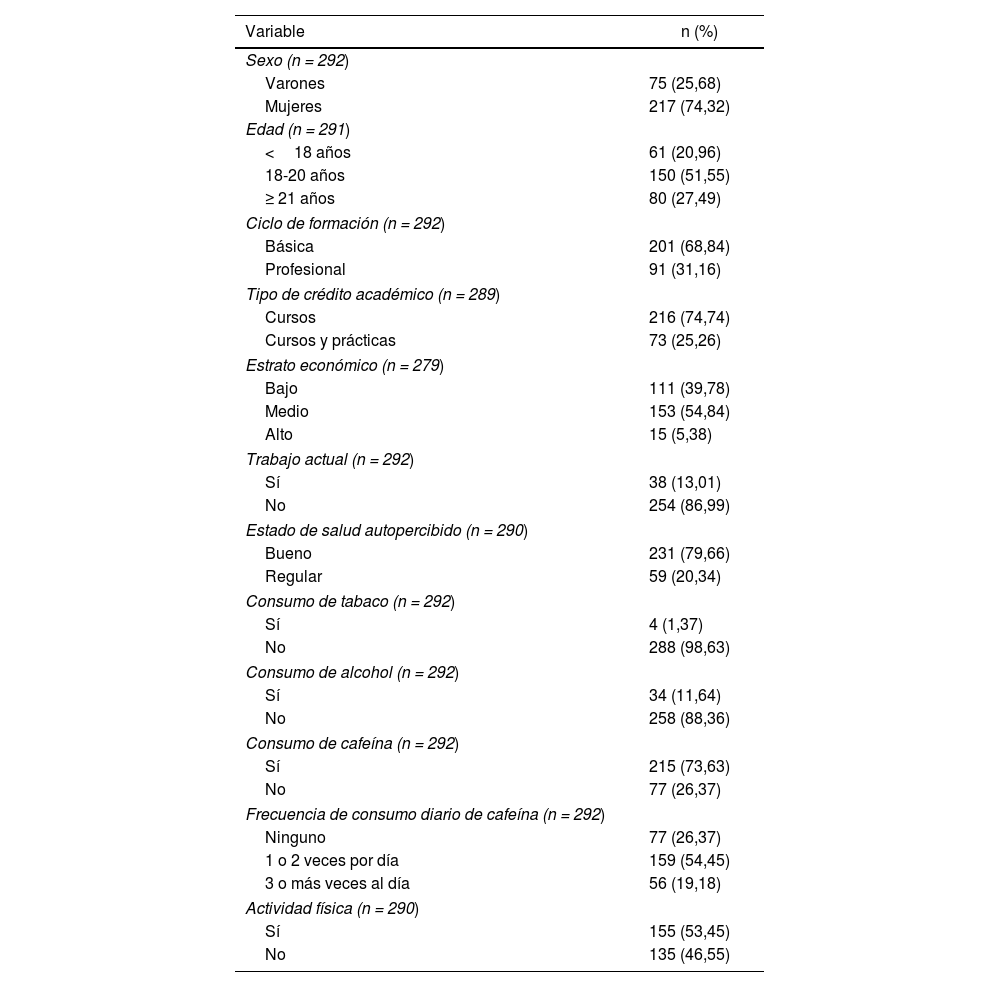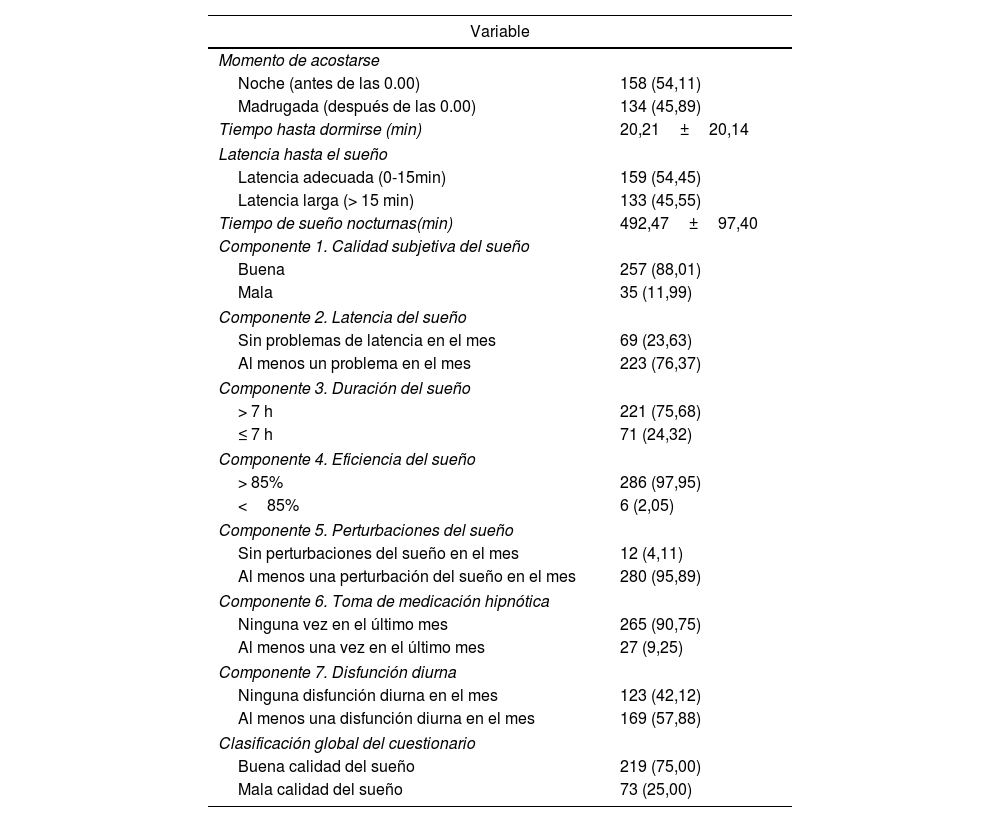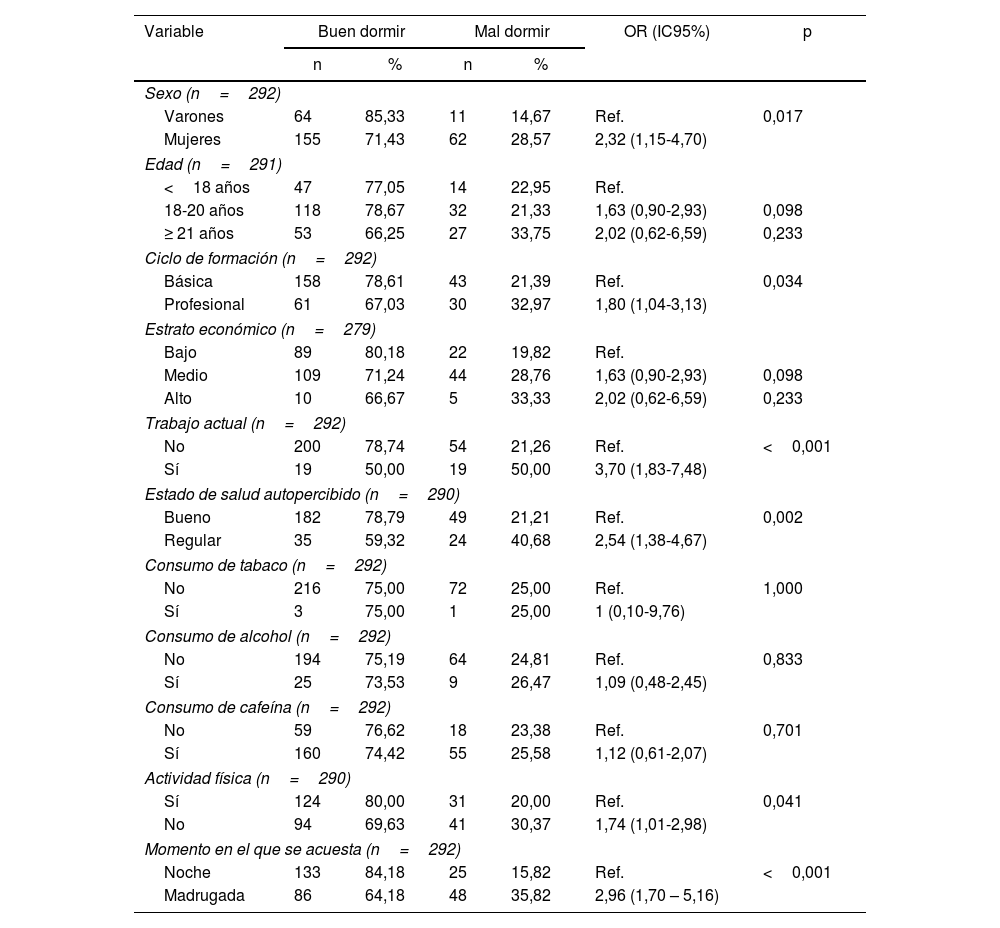
Número especial: Avances y retos en la psiquiatría regional en Latinoamérica
More infoLos trastornos del sueño son muy comunes en estudiantes universitarios. En el mundo y en Colombia se han estudiado principalmente en estudiantes de Medicina, pero en otras áreas de la salud se han abordado poco. El objetivo del estudio es identificar los factores relacionados con la calidad del sueño en estudiantes universitarios de una facultad de salud y rehabilitación de una institución universitaria de Cali, Colombia.
MétodosEstudio descriptivo de tipo transversal, en el que se aplicó el cuestionario estructurado Índice de calidad del sueño de Pittsburgh, versión colombiana (ICSP-VC), a estudiantes matriculados en la facultad de salud y rehabilitación de una institución universitaria de la ciudad de Cali. Se construyó un modelo de regresión logística binaria con las variables con significancia estadística o importancia teórica.
ResultadosSe incluyó en el estudio a 292 estudiantes; 7 de cada 10 estudiantes eran mujeres y la mitad de la población tenía 18-20 años. Al ajustar por las diferentes variables en el modelo de regresión logística, se encontró que el riesgo de tener mala calidad del sueño aumentaba al dormir menos de 7 h (ORa=4,81; IC95%, 2,36-9,80), ser mujer (ORa=3,62; IC95%, 1,51-8,66) y percibir un peor estado de salud (ORa=2,92; IC95%, 1,33-6,39).
ConclusionesLos factores relacionados con una mala calidad del sueño en estudiantes universitarios de una facultad de salud y rehabilitación se relacionan con ser mujer o trabajador en activo, tener mayor latencia hasta el sueño y percibir un peor estado de salud.
Sleep disorders are very common in university students. In Colombia and in the world, they have been studied mainly in medical students; they have seldom been addressed in other health contexts. The objective of this study was to identify factors related to sleep quality in university students in the health and rehabilitation faculty of a university in Cali, Colombia.
MethodsA descriptive cross-sectional study was conducted in which a structured questionnaire — the Pittsburgh Sleep Quality Index, Colombian version (PSQI-CV) — was administered to students enrolled in the health and rehabilitation faculty of a university in Cali. A binary logistic regression model was developed with statistically significant or theoretically important variables.
ResultsA total of 292 students were enrolled in the study; seven out of 10 students were women and half of the population was 18-20 years old. On adjusting for the different variables in the logistic regression model, it was found that the risk of poor sleep quality increased among students who slept for fewer than seven hours (adjusted odds ratio [AOR] 4.81; 95% CI, 2.36-9.80), were women (AOR 3.62; 95% CI, 1.51-8.66) and perceived that they had a worse state of health (AOR 2.92; 95% CI, 1.33-6.39).
ConclusionsFactors related to poor sleep quality among university students in a health and rehabilitation faculty were being women, actively working, having longer sleep latency perceiving themselves to have a worse state of health.










